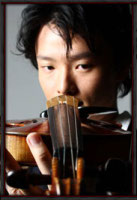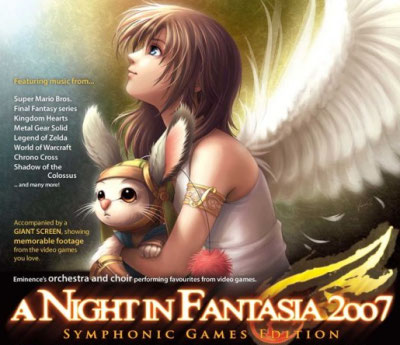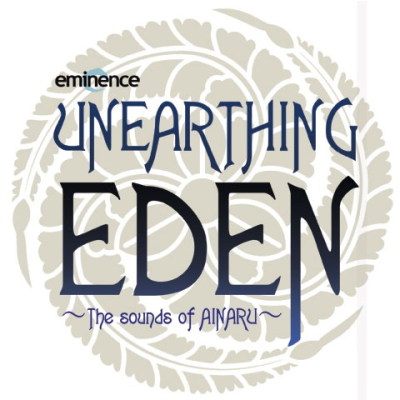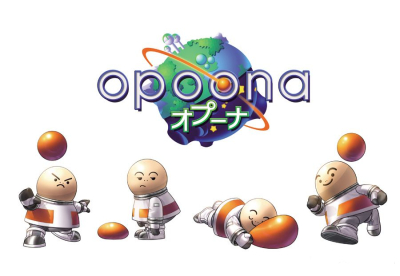Hiroaki Yura Interview: Eminence’s Concerts & Score Recordings
 In December 2008, we finally conducted an interview with Hiroaki Yura of Eminence. A violin virtuoso in his youth, Yura travelled around the world performing with many top orchestras and winning numerous awards. It wasn’t until 2005 that he settled down to create the Eminence Symphony Orchestra in Australia.
In December 2008, we finally conducted an interview with Hiroaki Yura of Eminence. A violin virtuoso in his youth, Yura travelled around the world performing with many top orchestras and winning numerous awards. It wasn’t until 2005 that he settled down to create the Eminence Symphony Orchestra in Australia.
Yura has fought to bring the traditionally highbrow classical music experience to the masses by featuring music from video games and film. Through Eminence’s many concerts and recordings for video games, Yura is on his way to achieving this goal.
In this first part of the interview, we discuss with Yura the origins of Eminence, his concert and soundtrack experiences, and his relationship with several well-known composers. The second part of the interview will focus on the recently released Echoes of War and the future of Eminence.
Interview Credits
Interview Subject: Hiroaki Yura
Interviewer: Chris Greening
Editor: Chris Greening
Coordination: Chris Greening
Interview Content
Chris: Eminence was founded in Sydney, Australia in 2003 by you and a group of friends. What were your inspirations and vision for the orchestra? What inspired your decision to focus on game and anime performances?
Hiroaki Yura: We were inspired to make a difference to our generation of people by performing music which they can connect to. To me, this meant soundtracks from feature films, anime and games.
Chris: Your biggest concerts to date are for the annual series A Night in Fantasia. What did these events encompass? What about the Piano Stories series?
Hiroaki Yura: A Night in Fantasia 2007 featured our biggest concerts to date. Like the previous years, we performed in Sydney and Melbourne, Australia. A Night in Fantasia encompasses performing symphonic music from anime and games with some special guests being invited from Japan.
We have also done four Piano Stories series of concerts. We feature mostly popular anime in these events with some game music. These concerts are well received since a lot of people play piano scores themselves at home and can relate to it.

Chris: Music performed at your small ensemble concerts have been featured in the studio-recorded CDs Passion and Destiny – Dreamer’s Alliance. Would you agree that these CDs are very different in their styles and approaches? Why couldn’t you include more material from the concerts?
Hiroaki Yura: The music recorded is exactly the same from the concerts. The differences are, they are performed in a controlled environment (Trackdown Studio – Fox Studio Sydney). We used our best takes from the recording sessions and mixed and mastered by the best people the soundtrack industry can offer.
Chris: Another impressive CD release — and the one that made me appreciate the maturity of Eminence — was World of John Williams. Was it challenging for the orchestra perform such material compared to game and anime projects? Is there any reason why you haven’t engaged in many movie-related projects since?
Hiroaki Yura: Well, the thing about Eminence is always about how to finance our orchestra. There is no “maturity” in our playing, it’s really if the funds allow us to hire out enough of our orchestral members for a concert or not. In professional recordings for game companies, they provide all the funding so it is no problem. However with concerts, we need to spend all that we have saved up and it is not often that we are able to get what we want.
Performing challenging music is really what we live for. However, I wouldn’t say motion picture soundtracks are more challenging than the game/anime music. We love to perform motion picture soundtracks again but we never had the time and resources to. Also, the copyright is harder to get approval for performance of these types of music.
Chris: Could you tell about your experiences with the following game composers who have attended your concerts: Ko Otani, Yasunori Mitsuda, Hitoshi Sakimoto, Nobuo Uematsu, and Yuki Kajiura.
Hiroaki Yura: Wow, that’s a bit personal (laugh). Here it is anyway. Kow Otani, my best friend. He is a legend. What can I say? His versatility in his style and his wisdom to know exactly when to use it how is extraordinary. I always see Mr Otani in my many trips to Japan, we get drunk to boot. OK, that’s off the record. This is seriously biased opinion, but those that haven’t checked out all his music, I seriously recommend it. This man’s music is a picture book of life itself.

Hitoshi Sakimoto is one of the first composers I have met since the concerts we did with Nobuo Uematsu. He has been a great friend and colleague and have worked on many projects ranging fromOdin Sphere to Valkyria Chronicles. I think he has the most unique harmonic writing out of all the composers listed above — the splash of tone colours that he uses are just purely magnificent. I just wish he spends a bit more time on each piece as I have known him to write over 50 pieces a day or something crazy like that.
I got to know Yasunori Mitsuda same time around Hitoshi. He’s always been the quite type who loves his Celtic music and sheer beauty of simple yet deep music. I feel there is still much potential in his compositions, and hope one day he can compose for foreign companies.
Nobuo Uematsu was the first composer to attend our concerts in 2004. A very nice gentleman, always smiling. I absolutely adore his earlier works; his skills with midi/synths are a work of a genius. The last composer who has visited is Yuki Kajiura. I don’t know her that well, so I guess I am not really ready to comment on her yet. She does write interesting music though and is fun to talk with especially over a glass of wine!
Chris: The Eminence orchestra or associated artists have performed music on Hitoshi Sakimoto’s Grim Grimoire, Odin Sphere, and Deltora Quest. What is the story behind these projects? Do you regret that Eminence’s role wasn’t larger?
Hiroaki Yura: Well there isn’t much of a story. Hitoshi Sakimoto just rocks up one day and say “hey, record this for me”. OK, it’s slightly more complicated than that, but he works on a limited budget. We all dream we can always use the best setup but that’s not always possible. Given the scope of the project, we are very happy to be involved in that scale.
Chris: Eminence’s role on Basiscape’s Opoona was somewhat different given it focused more on soloists. How did Eminence’s artists flavour the score’s electronic-tinged tracks? How did you meet the challenge of accommodating the diverse styles of the composers at the company?
Hiroaki Yura: We flavoured the tracks by using our best players. We are extremely proud of our elite core of principals as they have attained many of the highest achievements attainable as a classical artist. It was one of the most enjoyable experience we’ve ever had, and we wish for those tracks to come out on CD.

Chris: Eminence’s most significant game recordings are probably SoulCalibur IV and Valkyria Chronicles. Did the large budget of these projects allow you to perform more pieces on these titles? Did the action themes demand more emphasis on technicality than emotion?
Hiroaki Yura: Actually, our most high-profile recording we did was for Diablo III. These high budget recordings allows for a perfect setup to perform at our best capability. However, contrary to popular belief, not all high-profile games have enough budget for music. Whether it is a large budget project or not, we perform at our utmost. I guess the real question is we need to pack more music in a session and be generally more stressed about it in a lower budget project.
Chris: The culmination of Eminence’s collaboration with Hitoshi Sakimoto are the anime scores Romeo X Juliet and The Tower of Druaga: The Aegis of Uruk. What did the orchestra offer to these projects? How do anime performances differ in their approach from game recordings?
Hiroaki Yura: We offer exactly what we offer to any projects. Symphonic tracks. The anime recordings tend to utilise whole tracks whereas, in game tracks, we record it in bits sometimes so the composers can play around with it more later back at their own studio.
Posted on November 1, 2008 by Chris Greening. Last modified on March 2, 2014.













